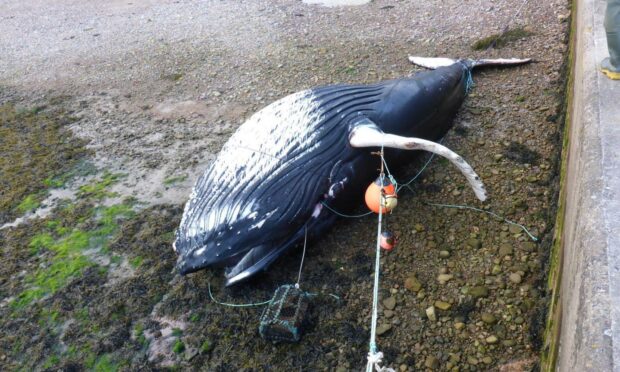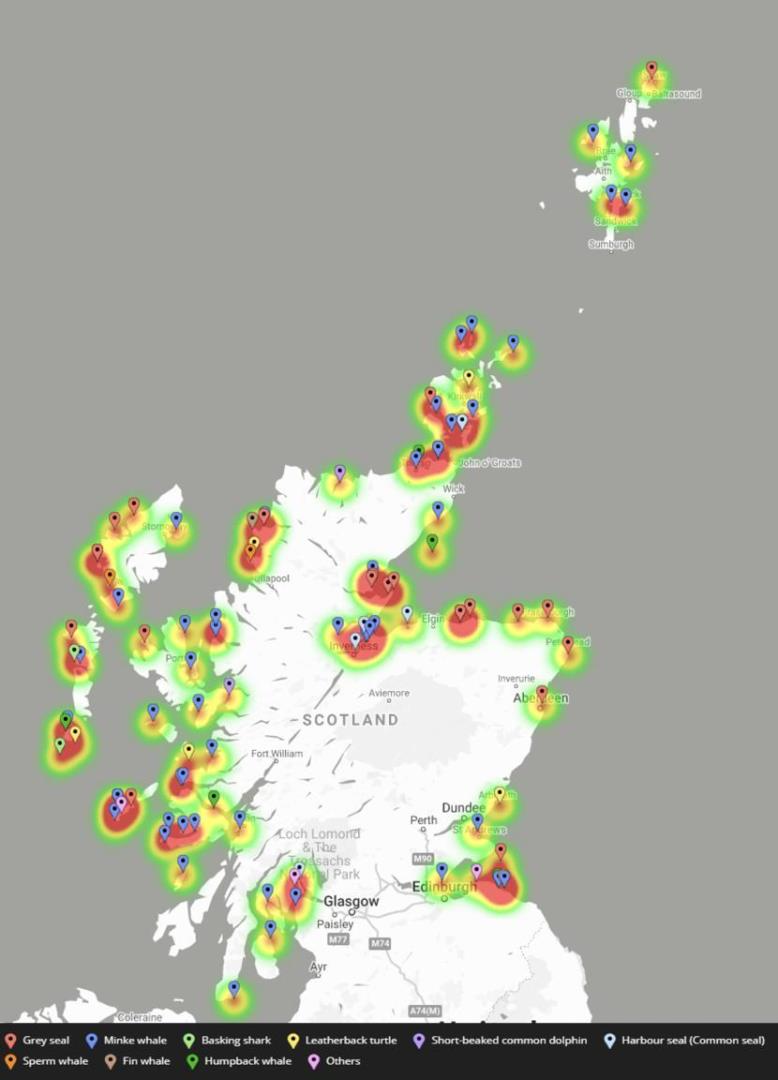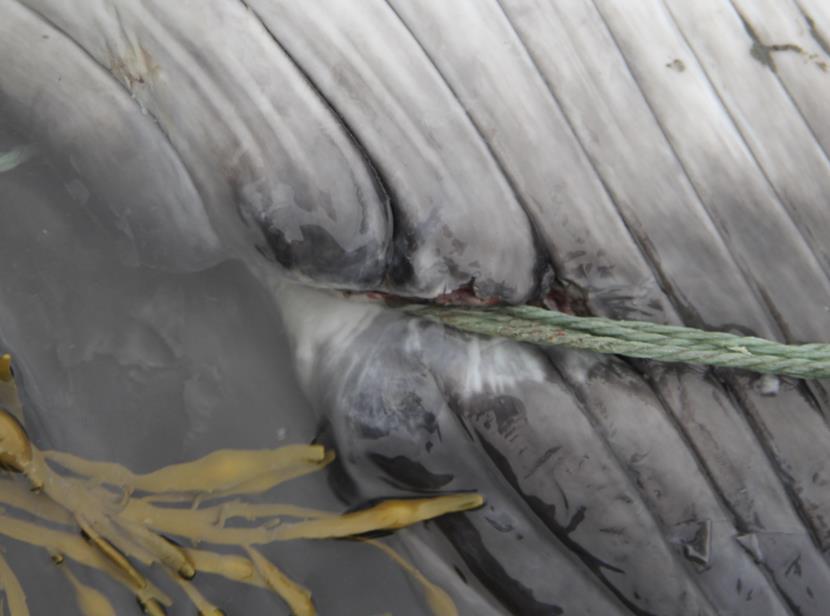Marine animal conservationists and Scottish creel fishers have joined forces to help protect “majestic” sea life from the horrors of slow, painful deaths caused by entanglement in fishing gear.
Nature Scot, research scientists, rescue charities and commercial creel fishers have teamed up for the Scottish Entanglement Alliance (SEA) project.
A first of its kind initiative in the UK, it involved interviewing 159 creel fishers about their fishing practices and their experiences of entanglements.
Nature Scot has today published a report on the first phase of the research.
What did the project find out?
The research analysed 146 incidents of sea animals getting tangled up over a 10-year period.
It found a huge range of species are getting stuck in and being injured, impaired, or killed by fishing gear and marine debris.
The unfortunate animals recorded to be involved in entanglements by the SEA project include whales like sperm whales, minkes and humpbacks, dolphins like northern bottlenoses and short-beaked common dolphins, reptiles like leatherback turtles, and enormous fish like basking sharks.
And a great deal of harbour and grey seals were also reported.
During at sea surveys, over 22% of live minke whales observed on the west coast of Scotland showed evidence of previous entanglements.
Kirstie Dearing, fisheries advisor for Nature Scot, said she welcomed the positive moves by the fishing industry to help reduce the problem,
The research also found that 27% of fishers had gear lost or damaged as a result of entanglement.
As well as hurting sealife, this also hurts the fisher’s pockets, as the SEA project researchers believe the total cost to the Scottish creel sector as a result of entanglements over a 10 year period could be more than £750,000.
She said: “We all find it upsetting to see our majestic marine species in distress, so we’re really heartened by the strong commitment and willingness of the fishing industry to work towards practical, safe and sustainable solutions on the issue of entanglement.
“We will only solve this problem by working in collaboration on potential legislative changes.
What has the report recommended?
After receiving feedback from creel fishers, the SEA project report has recommended a number of ways to help combat marine animal entanglement in the future.
The recommendations include the trial of weighted ropes which sink instead of float, tighter regulations to limit the amount of gear in the water, and caps on creel numbers.
Other suggestions include the creation of seasonal distribution maps of important and vulnerable species, in order to identify potential high risk areas to avoid.
These moves were backed by the fishers involved in the SEA study.
Bally Philp, from the Scottish Creel Fisherman’s Federation, (SCFF) said: “The SCFF are proud to have taken part in this study which is at the forefront of understanding and finding mitigations for tackling the global problem of marine animal entanglement in fishing gear.
“The project demonstrates when an alliance of government, industry, academics and conservation groups collaborate, solutions can be progressed to a degree that would otherwise be hard to achieve.
“We look forward to collaborating with our partners on sourcing funding for the next phase of this project, which will be to research and develop equipment and strategies to reduce entanglement of cetaceans and sharks in our fisheries.”


